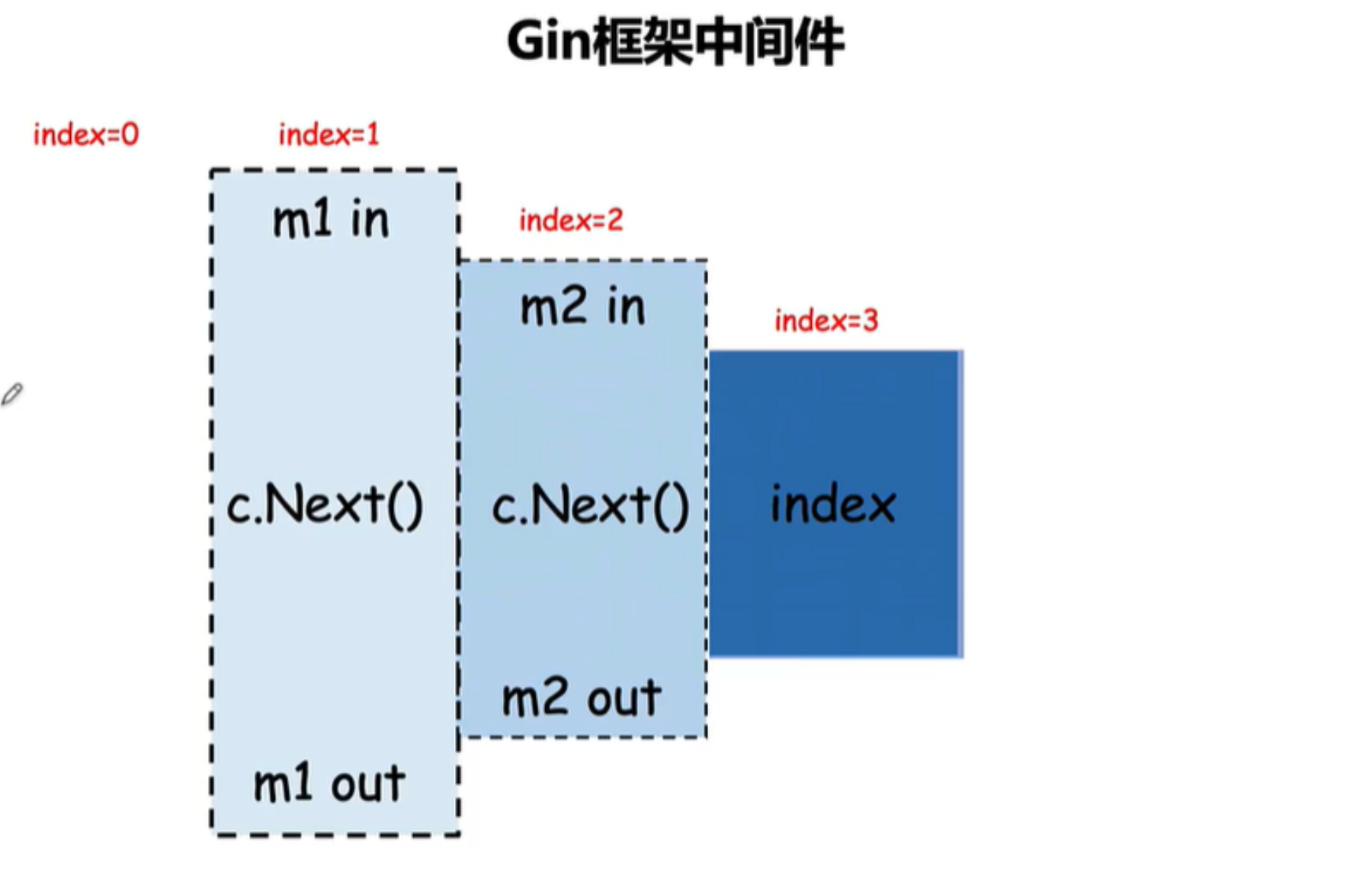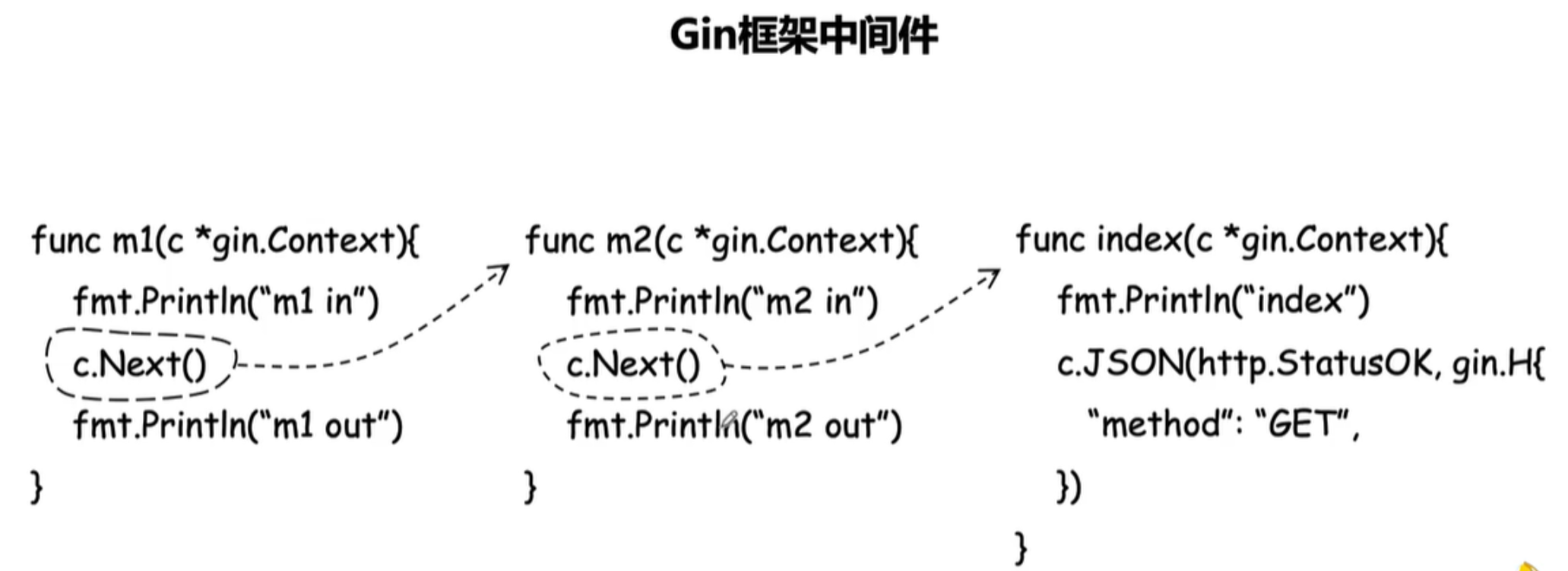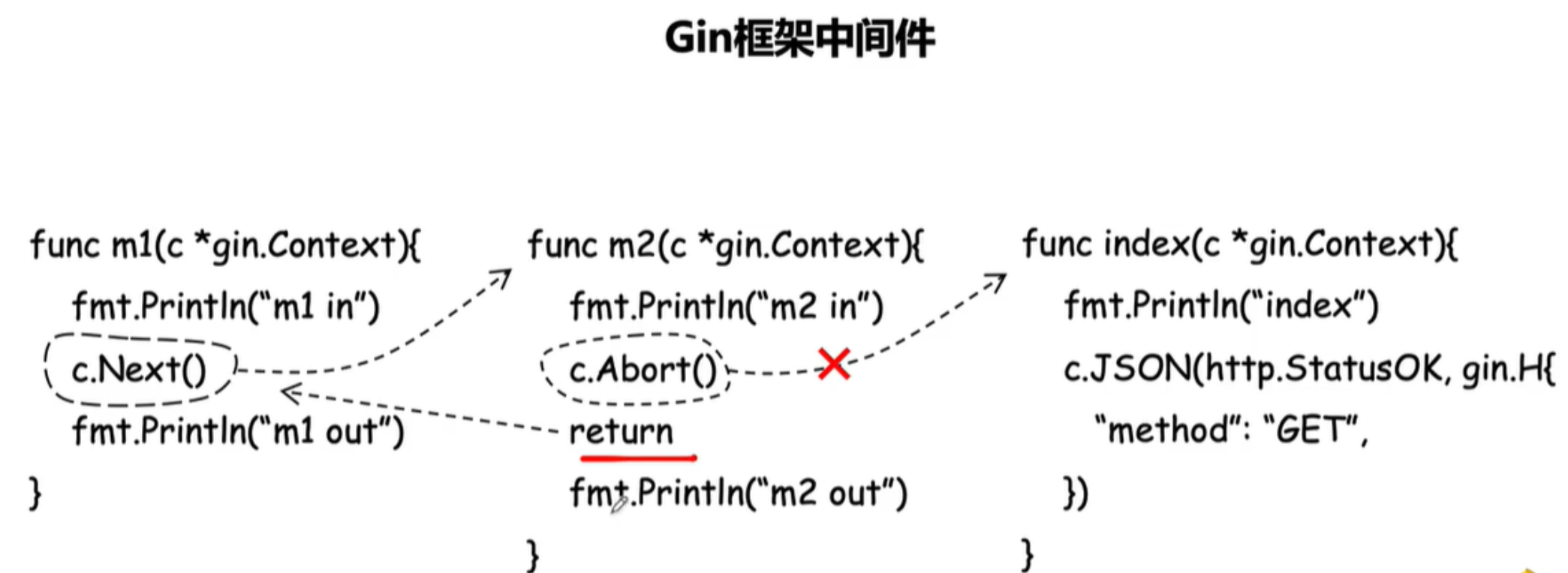gin中间件
首先感谢七米老师的讲解:视频地址这个视频让我更加清晰的了解了gin中间件。
Gin框架允许开发者在处理请求的过程中,加入用户自己的钩子(Hook)函数。这个钩子函数就叫中间件,中间件适合处理一些公共的业务逻辑,比如登录认证、权限校验、数据分页、记录日志、耗时统计等。
定义中间件
Gin中的中间件必须是一个gin.HandlerFunc类型。例如我们像下面的代码一样定义一个统计请求耗时的中间件。
1
2
3
4
5
6
7
8
9
10
11
12
13
14
15
16
|
func authMiddleware(doCheck bool) gin.HandlerFunc {
return func(c *gin.Context) {
if doCheck {
} else {
c.Abort()
}
}
}
|
注册中间件
在gin框架中,我们可以为每个路由添加任意数量的中间件。



1
2
3
4
5
6
7
8
9
10
11
12
13
14
15
16
17
18
19
20
21
22
23
24
25
26
27
28
29
30
31
32
33
34
35
36
37
38
39
| package main
import (
"fmt"
"github.com/gin-gonic/gin"
"net/http"
)
func indexHandler(c *gin.Context) {
c.JSON(http.StatusOK, gin.H{
"msg": "index",
})
println("index")
}
func m2(c *gin.Context) {
fmt.Println("m2 in ...")
c.Next()
fmt.Println("m2 out ...")
}
func m1(c *gin.Context) {
fmt.Println("m1 in ...")
c.Next()
fmt.Println("m1 out ...")
}
func main() {
r := gin.Default()
r.GET("/index", m1, m2, indexHandler)
r.Run(":9090")
}
|
上程序运行结果为:

为全局路由注册
1
| r.Use(m1, m2, authMiddleware(true))
|
为某个路由单独注册
1
2
3
4
5
6
7
8
|
r.GET("/test2", StatCost(), func(c *gin.Context) {
name := c.MustGet("name").(string)
log.Println(name)
c.JSON(http.StatusOK, gin.H{
"message": "Hello world!",
})
})
|
为路由组注册中间件
1
2
3
4
5
6
7
8
9
10
11
12
13
14
15
|
shopGroup := r.Group("/shop", StatCost())
{
shopGroup.GET("/index", func(c *gin.Context) {...})
...
}
shopGroup := r.Group("/shop")
shopGroup.Use(StatCost())
{
shopGroup.GET("/index", func(c *gin.Context) {...})
...
}
|









